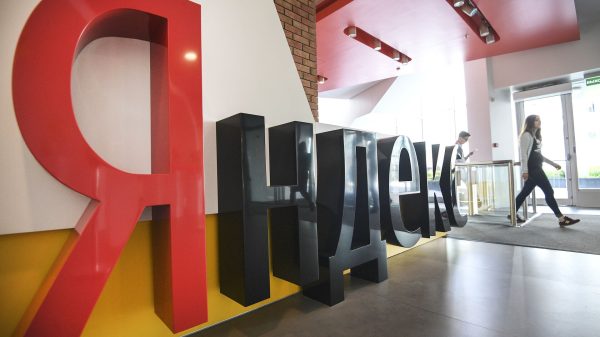
As inflation surges and fury over the cost of living crisis grows, big business is immediately confronted with claims of speculation.< /p
Politicians have been quick to point out alleged examples of bad behavior, from energy companies embezzling windfall profits, to banks underpaying their savings, to supermarkets erroneously overpricing food and fuel.
Allegations, of course on wrongdoing also help divert attention from the missteps of the political and central banking class, which have faced accusations that they are slow to grasp the magnitude of the crisis and take the steps necessary to bring it under control.
The question is: do companies really cheat the public? Or have they become a scapegoat for a larger failure?
Fuel
Drivers have long complained that while gas station prices rise quickly, they rarely fall that quickly.
Until recently, fuel suppliers stubbornly denied this claim.
But that claim was confirmed this week when the Competition and Markets Authority (CMA) accused supermarkets of driving up fuel prices.
The regulator found that since 2019, fuel retailers' margins have grown at the expense of millions of motorists.
The «historic price leaders» Asda and Morrisons, who tended to offer the lowest prices. The researchers found that they have been taking a «less aggressive» approach lately, preferring to generate more profits rather than offer consumers the most competitive offerings.
As many other gas stations took the lead from these cheaper players, it eased the pressure on the rest of the market and resulted in prices being higher than they might otherwise be.
Asda also «improved» its earnings by deliberately cutting prices more slowly than it could.
Overall, the CMA estimates that drivers ended up paying 6p more per liter than they would otherwise, costing consumers £900m between 2019 and 2022.
0407 Average fuel price per literIt also says that drivers are being cheated even more when filling up at petrol stations, where they typically pay an average of 20p more for petrol than elsewhere. Diesel drivers paid an average of 15p more.
There were few obvious reasons for this other than a lack of «competitive pressure», as the watchdog found. He called for a «fuel finder scheme» to make it easier for drivers to compare prices at gas stations in their area.
Asda insisted on managing costs to ensure it was «the cheapest traditional supermarket for both groceries and fuel during the period reviewed by the CMA».
Supermarkets also said that much of the increase in fuel revenue was used to keep food prices down when external pressures are stronger.
A Morrisons spokesperson criticized the methodology used by the CMA, saying that did not take into account the fact that their other expenses are also rising, including rent and wages.
It is true that supermarkets have been forced to increase their payrolls due to both the 9.7% increase in the minimum wage in April and fierce competition for workers from other industries.
Tesco has raised wages by 7% last year. April is the biggest payroll investment.
Meanwhile, real estate agency CBRE has suggested that rents in the most popular locations are likely to rise due to «competitive tensions», although prices are unlikely elsewhere. move as much as possible.
Ultimately, in this case, the CMA study does not disprove allegations of too high prices.
Broadband
One of the biggest bill increases on the welcome mat, rather anything related to your internet or mobile phone. telephone provider.
In fact, companies such as BT, Vodafone, Virgin Media O2, and Three have experienced rising inflation, with some customers seeing monthly bill increases of as much as 17.3%.
This is the result of billing changes, imperceptibly contributed by the industry during the pandemic.
In September 2020, BT announced for the first time that it would bill the equivalent of the previous January's inflation rate plus 3.9% each March.
Competitors with nearly identical policies quickly followed, including Vodafone, Three and Virgin Media O2, while budget service provider TalkTalk opted for plus 3.7% inflation and Shell Energy Broadband opted for plus 3% inflation.
p>
This means that BT customers, including subsidiaries EE and Plusnet, have increased their monthly bills by 14% this year. (This is the January inflation rate of 10.1% plus another 3.9%.
In the case of Virgin Media O2, the company chose to use the Retail Price Index (RPI), which is typically higher than the consumer price index (CPI) used by others, the increase in the account is even higher, at 17.3 percent.
UK Inflation 2306 vs.
For a family paying £30 a month, this would increase their monthly bill to £35.19, costing them an additional £62.28 a year in total.
Ofcom, the industry regulator, began reviewing price increases mid-contract in February and is separately investigating whether BT failed to properly warn Plusnet customers of upcoming price changes.
Richard Neudegg, director of regulation at Uswitch.com, argues that consumers shouldn't be on the hook for inflation in the first place if they signed a fixed-term contract, many of which include an exit fee.
«We strongly believe that suppliers who introduce inflationary increases should allow customers to terminate their contracts early without additional fees, or offer the option of having customers' contracts have a fixed price for the entire term,» he adds.
«Clarity won't help if most providers charge the same premium and there's no way out.»
BT, Virgin Media O2, Vodafone and Three say they need to raise their prices. to cushion rising costs and invest in better services.
BT alone announced in 2020 that it intends to invest £12bn in new fiber optic cables to deliver ultra-high speeds. As raw material prices rise and labor becomes more expensive, the value of these investments also rises.
At this point, there is certainly little evidence that these higher costs have translated into huge profits. BT is set to cut up to 55,000 jobs by the end of the decade after its annual profit fell 12%. Vodafone is cutting 11,000 jobs in three years after falling profits, and chief executive Margherita Della Valle describes the company's financial performance as not good enough.
Water bills
The amount paid by households for this most important service. — fresh drinking water — also continues to rise.
In the past two years alone, the average water bill has risen from £408 a year to £448 — an increase of about 10 percent, according to industry data. That's £215 for water and £233 for sewerage.
But with debt-laden suppliers failing to meet leakage and pollution targets while spending billions of pounds on shareholder dividends and executive salaries, there are now warnings that bills will have to rise even higher.
Across the industry, this could result in a 40% average annual increase in household bills in 2025, according to consultation papers published in The Times, although the proposed increase ranges from 17% to up to 56 percent.
0607 Rising water prices
Thames Water, the country's largest supplier with 15 million customers in London and the South East, has offered to increase its annual bill from £417 to £518, a 24% increase.
Yorkshire Water has offered a £17 increase %, from £447 to £525, while Southern Water, which covers Hampshire, the Isle of Wight, West Sussex, East Sussex and Kent, wants to bill 56%, from £432 to £525. 672, according to the Times.
The account increase must be approved by Ofwat, which sets how much suppliers can charge and invest during five-year «control periods».
David Black, the regulator's chief executive, said the increase was needed «to fund larger investment programs and…better the environment.»
However, the regulator has faced criticism for allowing water companies to borrow more than £70bn since the industry was privatized in the late 1980s.
Servicing this debt will become more and more expensive as interest rates rise, further complicating the task and requiring larger bills.
Water companies' debt compared to the UK. The lead singer of the rock band The Undertones argues that water companies and their shareholders should allocate money for important infrastructure improvements, not consumers.
«For God's sake, why should the general public pay for this a second time?» he adds.
“Vodokanals must return the money to us. For 30 years, Ofwat has failed to properly regulate this industry — now it must prove that it is able to act in our interests.
If the water companies are going to rob us, this is not news. phenomenon, although the higher cost of borrowing has undoubtedly made it more relevant. Instead, the problem arises from the accumulation of debts that have long been brewing.
Thames, for example, accumulated much of its debt under the ownership of Australian investor Macquarie, who bought the business in 2006 and sold it in 2017.
Energy bills
Energy providers are heavily regulated and limited in how much they can charge consumers under the government's energy price ceiling.
The cap, which households didn't pay in full last winter anyway due to additional government subsidies, soared to £4,279 in the first quarter. , caused by a sharp increase in gas and electricity prices after the war in Ukraine.
The cap dropped to £2,074 this quarter thanks to a significant reduction in the cost of gas.
This means consumers should now start to see their bills drop for the first time in nearly three years.
However, there is one catch. Because while the wholesale price of energy has fallen, households are paying more for other things.
For example, after the collapse of more than 20 energy suppliers that faced a cost spike in 2021, surviving suppliers who committed their customers have received approval from regulator Ofgem to recover around £3bn of related costs through surcharges. to accounts.
1603 Energy price cuts saved households hundreds of pounds.
These costs added £61 to a typical annual bi-fuel electricity bill as of January, according to analysts at Investec.
Citizens Advice argues that the blame for this should be placed on Ofgem, which it says has «taken no action against unsuitable energy suppliers for nearly a decade.»
“The costs we are now seeing from supplier failures are actually due to regulatory violations,” says Morgan Wilde, head of policy at Citizens Advice.
Ofgem has previously said it recognizes the need for market reforms and is pushing for changes to address the problems.
While some elements of customer electricity bills are likely to rise, with the price cap in place, it is hard to prove that speculation continues .
p>Savings accounts
One of the few benefits of higher interest rates, compared to the costs they add to your loan payments, is supposed to be higher income from the bank in your savings account.< /p>
However, data consistently show that while UK lenders are raising mortgage costs at the first sign of trouble, they are noticeably slower in passing on higher savings rates to customers.
The Bank of England's base rate is currently 5%, the highest level since 2008, but the average easy-access savings account pays out less than half that level, at 2.45 percent, according to Moneyfacts.
However, this average hides some of the lowest numbers, as some big brands still pay less than 1 percent to their contributors.
On Thursday, bank executives were called in to explain to the city regulator, and Chancellor Jeremy Hunt warned them to treat consumers fairly.
3006 The Big Four banks don't pass on interest rates.
Harriette Baldwin, Chair of the Parliamentary Treasury Selection Committee, also wrote a letter to leading creditors on Monday.
“With interest rates rising and our voters feeling constrained by rising prices, it is only right that the UK's biggest banks are raising their pitiful easy-to-reach savings rates,” Baldwin said.
UK Finance, which represents the banking industry, argues that savings and mortgage rates are not directly related, so they change at different times and for different amounts.
Part of the problem, he says, is that millions of customers are still on very cheap fixed mortgages that were negotiated before interest rates started to rise. This means banks make less money from mortgages than the base rate of the Bank of England suggests, giving less money to pass on to savers.
However, this argument is somewhat undermined by the increase in rates of large banks. profit since the beginning of the crisis. Lloyds profit rose 46% to £2.3bn in the first three months of the year; at HSBC they tripled to $12.9bn (£10.1bn); Natwest reported £1.9bn 50% trial; and Barclays profits rose 27% to £1.8bn.
Two of the four, Lloyds and HSBC, also managed to raise rates on their easily accessible and fixed savings accounts in the hours before meeting the watchdog, suggesting that in this case political pressure may still work.
Food prices< p>There are several ways in which consumers have felt the impact of inflation as keenly as through their shopping cart, but the continued reasons for this are something of a mystery.
Official data for May showed that while headline consumer price inflation remained at 8.7%, food and non-alcoholic beverage prices continued to rise by 18.3%.
The price of a typical bottle Olive oil jumped 47% last year, from £4.19 to £6.16, according to the Office for National Statistics.
Cans of mayonnaise and canned tomatoes also jumped in price by a third, from from £1.63 to £2.18 and 54p to 70p respectively, and a 250-gram serving of butter now costs £2.31, down from £1.93.
Prices for bacon and salmon fillets per kilogram also rose by a quarter.
Food inflation
Swati Dhingra, a policy maker for the Bank of England, said her analysis of large supermarkets does not suggest that «greed» is to blame — a phenomenon when companies increase prices under the guise of high nationwide inflation.
True price increases caused by the energy crisis and even bad weather in vegan Spain has pushed up prices in recent years.
But inflation remains inexplicably sticky for commodities like food, beer and tobacco. and «basic durables» such as televisions, she added.
With supermarket margins stagnant at around 3%, the Big Four executives Tesco, Sainsbury's, Asda and Morrisons also insist they are not making a profit.
p>
For some, the blame may instead lie with food manufacturers such as Heinz and Unilever, who boast far greater profits than grocers.
However, Unilever executives insist that this is not the case, pointing out that the company's margins have recently fallen from 18% to 16%.






















































Свежие комментарии